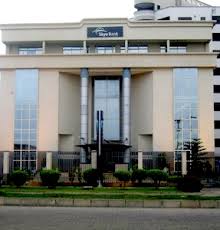JARUS ON SUNDAY: Reflections on Graduate Unemployment in Nigeria

I wrote this article in November 2012 and was published in BusinessDay newspaper. I have presented it here again for your reading pleasure.
When few months ago Nigeria’s cut of the social media space was awash with debate on the propriety of Forbes Billionaire, Aliko Dangote, seeking to employ graduates as drivers for his companies’ fleet of trucks, I did an article published in several newspapers endorsing the scheme. My endorsement was hinged more on unemployment reality in Nigeria and the need to bring sanity to our highways. But when I read in the newspapers few days ago that even PhD holders applied for the position, I realised I underestimated the problem. This got me ruminating once again on that notorious subject of graduate unemployment in Nigeria.
For the average Nigerian youth of my generation, the two most difficult hurdles to cross in the quest to become a responsible man that is acceptable to the society are gaining admission into the university and getting a decent job for living after school. Fate may have been so generous to some of us that crossed these bridges so seamlessly, but this can only be appreciated when one sees what many Nigerian youths go through to scale these hurdles. I attended a public secondary school in a semi-urban area in Kwara State and was fortunate to make good grades in secondary school certificate and university matriculation examinations at first attempts. Combined with the merit-based admission policy of the university I sought to attend, my quest for university education was seamless. But having led unsuccessful efforts to get other people, most of whom are above average, gain admission into university in later years, I knew my case was just one in a thousand. I know people that scored above 200 in UME every year but couldn’t get university admission offer. That was ten to twelve years ago. With the presence of a university in virtually every village today, the supply may be well above demand now and seeking university admission no longer appears to be a serious hurdle as it used to be then.
But this has only aggravated the other obstacle. With university admission now easier than ever, the effect has been multiplication in the number of graduates; and when there is no proportionate increase in the number of job opportunities, swelling the ranks of unemployed youths is the natural result. In the seventies, you could work with Higher School Certificates. Then, having university degree, almost irrespective of class of degree, was a guaranteed meal ticket.
Perhaps my Oxford-trained friend, Idris Ayo Bello, foresaw the PhD application for Dangote’s driving job when he wrote in his article “Graduate as a truck driver” (Punch, August 26, 2012), that when supply of jobseekers outstrips demand as we have in Nigeria, even PhD holders will apply for driving job. This is exactly the case here.
Yet, beyond excess supply, there is also the question of quality of Nigerian graduates which has been declining progressively. It was the erstwhile governor of the Central Bank of Nigeria (CBN), Charles Soludo, who raised alarm on the ‘unemployability’ of many Nigerian graduates. Sadly, the professor was very right. I interact with a number of Nigerian graduates on daily basis and I find appalling the quality of youths that parade themselves as graduates today. The other day, another friend, Mohammed Dahiru Aminu, a young but very brilliant geologist, in a treatise he did, published in several national dailies including BusinessDay (September 10 & 11, 2012) and Tribune (August 30, 2012), narrated how his friend, a political science graduate from a high-end private university, explained his coming from Adamawa State as the meaning of the AD that appeared in ‘2010 AD’ on his degree certificate. I know many other graduates, including PhD holders, who struggle to write application letters. This is why I believe quality, rather than quantity, of graduates, is at the root of massive unemployment in this country.
There is a dangerous mindset among our graduates that jobs come automatically with being a graduate, and you don’t need to justify why the employer should hire you. I have read many unemployed graduates lament their situation in written English that easily tells you why they are where they are. There are some other categories that hold this defeatist mentality that you can’t get a job unless you know somebody. Yes, I am not feigning ignorance of the role of connection in job placement in Nigeria today, but I believe this is exaggerated. Ninety percent of job openings in Nigeria, especially in the private sector, are still based on merit. After all, no company management would want their organisation to fail by populating its workforce with incompetent people. Even in the public sector the situation is not as bad as portrayed. The earlier Nigerian graduates purge their minds of these negative beliefs and be more proactive, the better for them.
Now, how do we improve the situation? The bulk of the solution lies in the graduates themselves. Getting a job is hardly something you approach in a fire-brigade fashion. Planning for it, if it doesn’t start from the secondary school, should at least start from your first year in the university. Higher institutions, especially cosmopolitan federal ones, serve as a great platform not only for direct learning but for exposure and other forms of indirect learning. A lot of Nigerian students have raw talents but lack of exposure and access to right information stifles the achievement of their potentials. Some of us spent our first three levels in the university working on our CGPAs, while in final year, when our eventual class of degree was all but sealed, we were busy strategising on post-school plans, with focus on the labour market. In my own case, I must thank Niyi Yusuf, now country managing director of Accenture Nigeria, for providing the right post-school information mine for me and other friends as we worked on our post-school strategy in our final year. The point I am making here is that long-term planning, starting from school, is vital to escaping the unemployment trap in our society today.
Many Nigerian graduates still have a lot of work to do on themselves and it is not too late. Narrow-mindedness limits one’s opportunities, versatility expands it. A good number of Nigerian graduates have very narrow grasp of issues, making it difficult to impress in interviews. Beyond the paper certificates you gather, an employer would naturally want someone that can add multiple value to his business, especially given the very competitive pool he has to choose from. Knowing what is going on in one’s immediate and distant environment is vital.
I am not in any way absolving government, but to me, and contrary to popular opinion, government’s blame comes more from their failure to bring our schools to necessary standards where real learning can take place, and less on their failure to provide direct jobs for these graduates as is popularly held. As an economics graduate, I am aware that if the managers of our economy get things right, the multiplier effect will trickle down to all sectors and more jobs would be available, but who are the people to do these jobs? Maybe the few that are very qualified and are still in the labour market. But when you look at the political science graduate of the highly regarded private university that does not know what 2010 AD means, you wonder whether many people would have fared better even if these government schools are brought to standard. After all, this private university has the best of learning facilities you can think of.
Don’t forget to vote Jarushub as Nigeria’s Career Blog & Overall Blog of the Year
Established in March 2013, JarusHub is a Nigerian information hub with focus on career and management. It is rated Nigeria's most authoritative destination for online career resources. It parades an array of Nigerian professionals who share their career experiences with a view to bridging career information gap and mentoring a generation to success. Whether you're a student, a recent graduate or an established professional, or even an executive, you will always find something to learn on JarusHub. All enquiries to jarushub@gmail.com or 0808 540 4500. Facebook: www.facebook.com/jarushub; Twitter: @jarushub or @mcjarus.
Path to Big 4: Stream 11
April 4, 20245 Best Useful Applications Of AI in Modern World
November 17, 2023
Let us have your say by leaving a comment belowCancel reply
Recommended For You
-
FROM MIDDLE EAST WITH THANKS: A LETTER FROM A JARUSHUB MENTEE
January 17, 2017 -
SUNDRY QUESTIONS ON COURSES OF STUDY (II)
September 28, 2014









